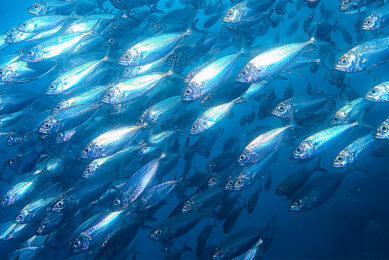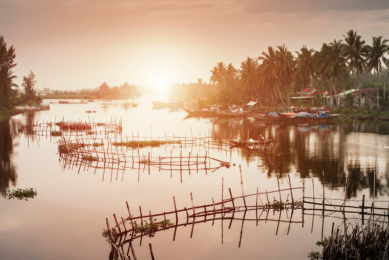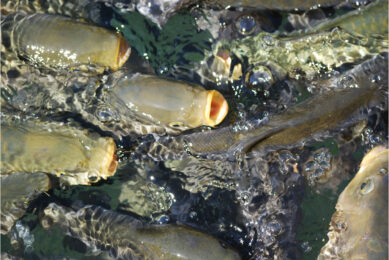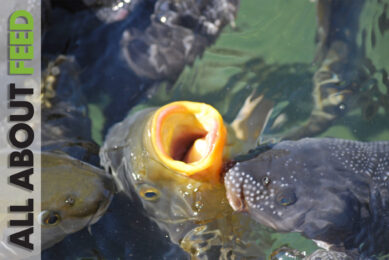Struggling fishermen turn to aquaculture
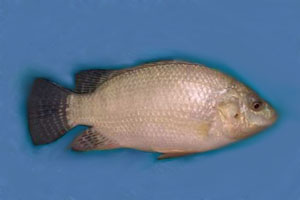
The fishing industry in Senegal has been devastated by a dramatic drop in catches, has resorted to the ever expanding business of aquaculture.
For generations of Senegalese fishing has provided a key part of their diet and an important means of keeping the country afloat. But increasingly people are turning to farming rather than catching fish as stocks dwindle.
“I made my first fish harvest in January with 1,121 individuals that I have sold with an average weight of 277 grams (10 ounces) and I’m going to do it again in the coming days,” says Serigne Fallou Ndao, standing before five ponds he constructed in the northern village of Moundop.
Along the bumpy, reddish dirt track leading to the site in the Senegal River valley, rice paddies are the main source of agricultural income. “I had always grown rice and vegetable crops but, since 2009, I’ve been involved in fish farming which is more profitable than agriculture,” says Ndao, who dodges questions about his income.
On a site neighbouring the Moundop fish farm in Maraye, workers build concrete tanks and ponds to the background thrum of earth-moving equipment. “We’re establishing the largest fish farming site in Senegal, on 25 hectares (62 acres), for 50 private developers to start production in July,” says Abdoulaye Ngom, the local head of the National Agency for Agricultural Integration and Development, a publicly-funded job creation project.
The Moundop and Maraye sites are supplied with larvae and young fish — known as fry — from the town of Richard Toll, which contains the west African country’s main hatchery.
After initial experiments with fish farming in the 1980s, Senegal set up the National Aquaculture Agency (ANA) in 2006, aiming to provide enough larvae to renew stocks in all of the country’s farms. “The tilapia and catfish, two robust and easy-to-raise local species, were selected,” says Mamadou Sene, an aquaculture specialist at ANA.
“Fish have become scarce and expensive in Senegal but our country has the potential for aquaculture with (four) rivers, 700 kilometres (435 miles) of coastline and warm waters. Applications to start fish farms are multiplying,” he says, noting that requests were coming from both fishermen and farmers. The production of farmed fish rose from 10 tonnes annually before 2008 to 321 tonnes in 2012 and the goal is to reach 10,000 tonnes in 2018.
This volume remains a drop in the ocean compared with the 436,000 tonnes caught at sea in 2011, but for several years stocks have been over-exploited and species such as the grouper are threatened with extinction, according to researchers. In May last year Senegal cancelled the licences of more than 20 foreign fishing trawlers amid growing resentment among local fishermen whose 30-foot “pirogues” could not compete with a heavily subsidised European Union fleet of 10,000-tonne factory ships.
But non-EU trawlers are continuing to overfish the coastline, and families are finding it increasingly difficult to source the main ingredient for Senegal’s national dish, a fish and rice meal known as “tieboudienne”. According to experts, many fish consumed by the Senegalese are now caught in neighbouring Mauritania and Guinea-Bissau while fishermen remaining in Senegal waters are having to go on increasingly long expeditions to make a living.
In the Senegal River, Diouf says many fishermen have become fish farmers because of declining catches, caused largely by the construction of dams along the waterway in the 1980s. “Aquatic plants have invaded waterways, impeding canoes and the casting of nets,” says Ousmane Gueye, a fisherman from Richard Toll who now farms fish in floating cages.
But despite the growing interest, aquaculture still remains beyond the reach of many poor fishermen who cannot afford to buy land to start up farms and are unable to obtain credit, says Sene. “Moreover, there is no business in Senegal specialising in the production of fish food. We have to import,” he adds.
Serigne Fallou Ndao called for better management of livestock by the ANA and training in farming techniques. “For many weeks I have wanted to harvest my fish but I have no way of knowing how big they are,” he says.
Source: Ghanamma




